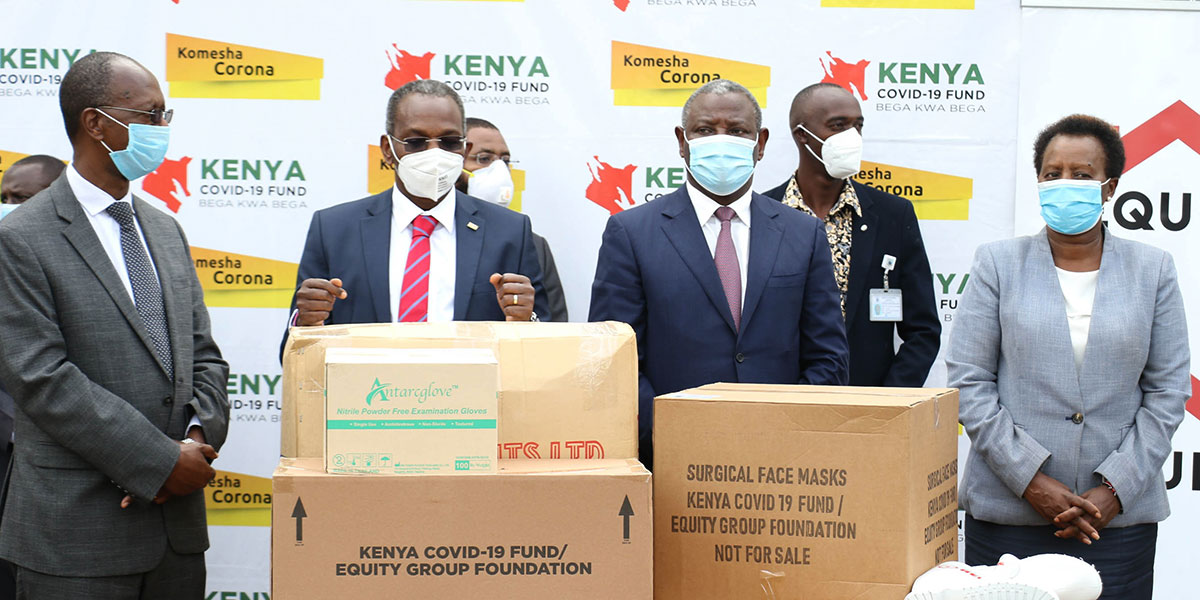When COVID-19 started to emerge in Africa, governments, the private sector and social institutions acted fast to minimise its spread. In Kenya, for example, the government introduced a partial lockdown, curfew, social distancing, face masks, and reduced movement within and blocked travel into Kenya. While these measures were important to reduce the spread of the virus, they have had a significant impact on the social, political and economic life of the country, especially for those people who are dependent on daily labour or small-scale trade to sustain their families.
In this COVID-19 moment, we need solidarity, inspired by #ubuntu, so that we can be fully human together @Mwansa3Rodgers #c19ConflictMonitor
Tweet
Social protection
According to the United Nations Development Programme (UNDP), “poverty is the result of several interacting factors, including importantly: redistribution of incomes, assets, and opportunities; pro-poor economic growth; and social provision and protection.” In this context, social protection is seen as policies and initiatives that are aimed at enhancing the capacity of poor and vulnerable people to manage economic and social risks, such as unemployment, exclusion, sickness, disability and old age. Continuing with the Kenyan example, the government has taken considered steps towards containing COVID-19, whilst trying to keep as much of the economy functioning as possible. In addition to COVID-19, Kenyans have also had to contend with locust swarms and catastrophic floods, which further threatened the food security of 25 million East Africans. To strengthen community and social resilience in the face of this triple menace, the Government of Kenya has introduced the following social protection measures:
- granted 100% tax relief for people earning up to KES24 000 per month;
- reduced personal and corporate income tax rates from 30% to 25% to enhance personal earnings and purchasing power, and provide incentives to businesses to retain staff and operations;
- reduced value added tax from 16% to 14% to boost liquidity in the economy;
- reduced turnover tax rate from 3% to 1% to cushion micro, small and medium enterprises;
- initiated a pilot cash transfer of KES1 000 per week to vulnerable households in Nairobi County via M-Pesa (a mobile phone-based money transfer service, payments and micro-financing service), implemented in 11 sub-counties; and
- established and operationalised a COVID-19 Emergency Response Fund to receive and distribute donations to vulnerable people.
While these measures have helped to mitigate the impact of COVID-19, the challenges remain daunting. According to a survey by the Kenya National Bureau of Statistics (KNBS), more than 300 000 people have lost their jobs, there has been an increase in food commodity prices and the volume of cash transfers and remittances has decreased since the first case of COVID-19 was reported. Many people are unable to pay rent and others are failing to renegotiate the terms of their loan payments to adapt to the post-COVID-19 economy.
Ubuntu
Ubuntu is perhaps most profoundly captured in a Nguni proverb, which can be literally translated as a “person is a person through others”.It is an indigenous African philosophy common among the Bantu-speaking people of southern and eastern Africa. It is called unhu among the Shona of Zimbabwe; ubuntu among the Nguni of South Africa; ubuntunse among the Bembaof Zambia; utu among the Swahili and ūmūndū among the Kikuyu of Kenya. Ubuntu can be understood as “a profound sense of interdependence and emphasizes that our true human potentials can only be realized in partnership with others”.
While recognising that ubuntu can have various ethical and existential interpretations, as a common African philosophy it can perhaps be used as a shared philosophical basis to remind people of their common humanity and to bring people together for a common purpose – in other words, to join forces to enhance social protection amidst the COVID-19 crisis. This can take many formal and informal forms: cash transfers, remittances, renegotiating rent and loan agreements, employment, charity, shelter and protection. According to Christian Gade: “In the process of me being restored, ubuntu suggests that you must also be restored because we can only be fully human together.”
Strengthening our social protection in response to COVID-19 cannot only be left to the government. We should not stand expectant, hoping that someone takes the lead. We all have a share in strengthening efforts to containing the impact of COVID-19 while enhancing the social protection of each other and the most vulnerable. We can be inspired by the great sense of solidarity embedded in ubuntu.
Mwansa Rodgers is an MA Student in Peace Studies and International Relations at Hekima Institute of Peace Studies and International Relations, Nairobi, Kenya. He is a Member of the Society of Missionaries of Africa; A Roman Catholic Religious Institute. He is a Researcher and currently acting as a Research assistant at the Center for Research Training and Publication (which is part of Hekima University College). He tweets at @Mwansa3Rodgers

